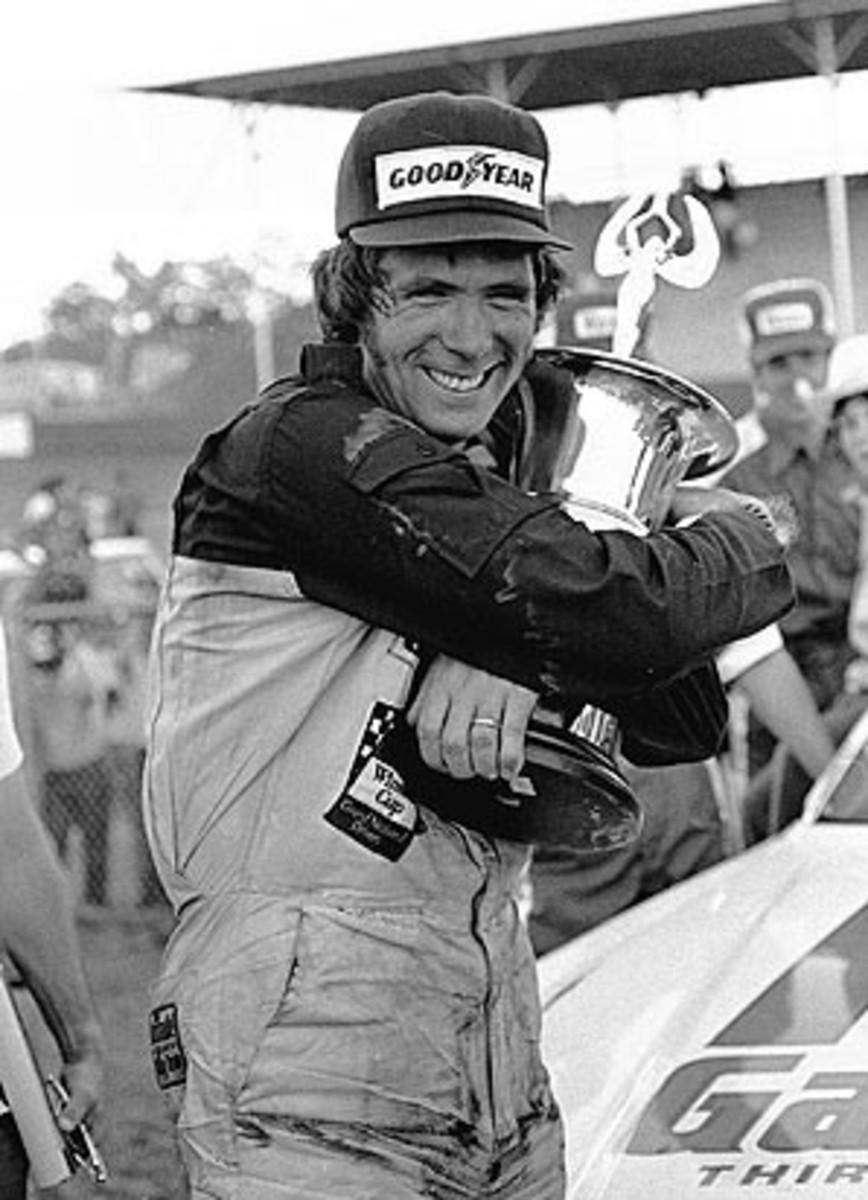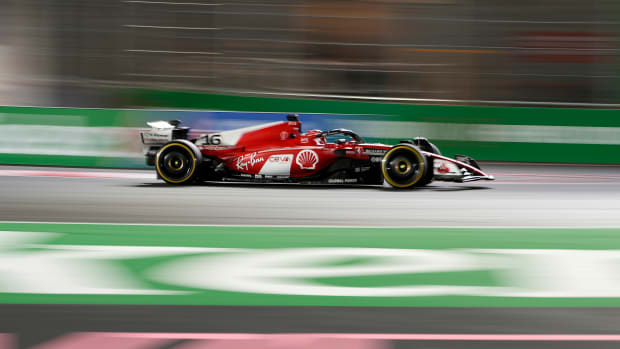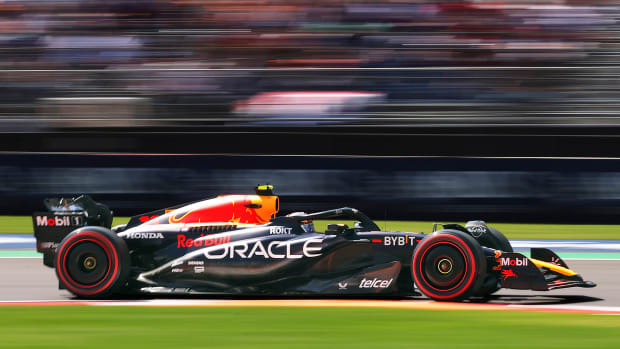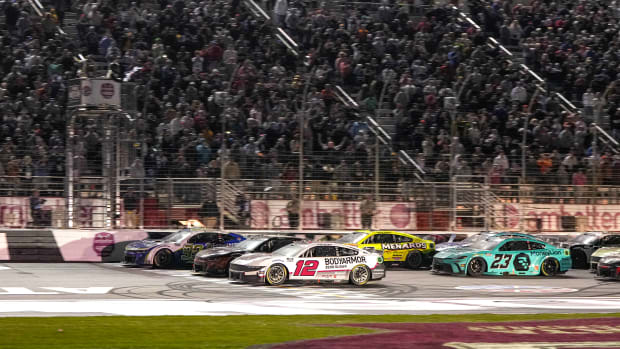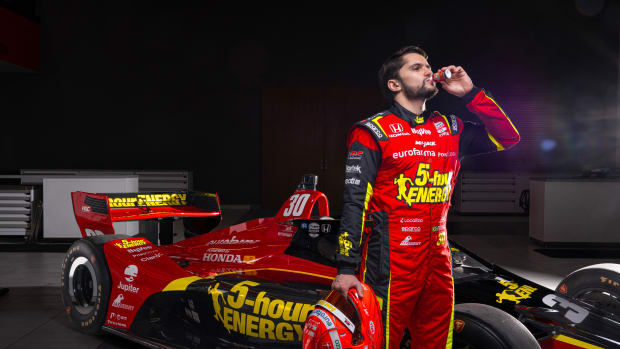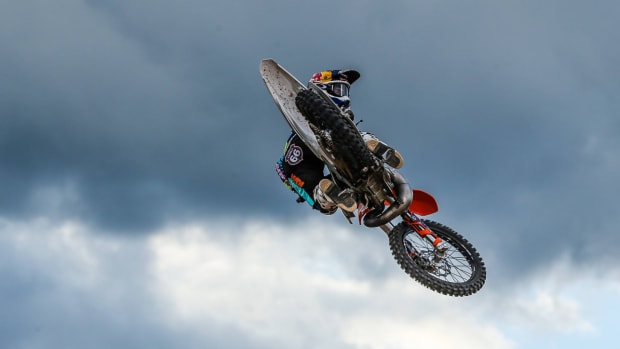HOFer Darrell Waltrip looks back
"I thought I'd figure out the rest when I got there," Darrell Waltrip recalled.
That, he did.
Since making his Cup Series debut in the Winston 500 on May 7, 1972, Waltrip has been a fixture in NASCAR. To a generation he's a Hall of Fame driver; to another he's the Fox Sports and SPEED commentator who excitedly yells "Boogity, boogity, boogity! Let's go racing boys!" at the opening of races, and to younger fans he's Darrell Cartrip, the character from Disney/Pixar's Cars and its 2011 sequel.
"I just dreamed about being a race car driver," the 65-year-old said. "I dreamed of maybe someday racing at Daytona, Talladega, Darlington. For me I was a young kid racing in Owensboro [Ky.] and I had aspirations of doing something bigger than that. Where it would take me? Where I would end up? I had no earthly idea."
***
What Waltrip really wanted was to be an entertainer. He wanted to be in the spotlight.
"I wish I could sing," he said. "I wish I could play an instrument. But I can't."
He found his stage in a world where he was initially an outsider -- NASCAR was still rooted in its Deep South past when Waltrip arrived -- and he embraced his role. He was brash and cocky, drawing the ire of fans as he poked fun at icons Richard Petty and David Pearson (he would later endear himself to those same crowds, winning the Most Popular Driver Award twice.) He would feud with the Allisons and bump heads with Dale Earnhardt Sr. He ran his mouth so much that after a wreck in the 1977 Southern 500 at Darlington that took out both his and Cale Yarborough's cars, Yarborough famously said of the incident "Jaws! Jaws! That talky Jaws! That's what happened."
"I always wanted to be different," he said. "My favorite saying is 'A lot of people travel the road of least resistance and I traveled the road I could least resist.' That's how I've always been. ... It didn't' matter to me. I just went in a different direction."
Of course all these years later, "Jaws" is still talking.
Fox's lead analyst since it began airing races in 2001, Waltrip has been a lightning rod for critics from the start, openly cheering when younger brother Michael won the Daytona 500 in his debut with the network. His detractors say he's too opinionated, too over the top; he's comic relief in the booth. But he's also unflinchingly honest and few, if any, analysts in the sport can take viewers inside a driver's mindset during a race like Waltrip can.
"I'm not a journalist. I didn't go to school to learn to be a journalist. I went to school to learn to be a race car driver," Waltrip said. "That's how I think: I think as a driver. I think my role on TV ... I've been given the luxury to do what I do. David Hill, my boss at Fox Sports, has never said 'You've got to do this. You've got to do that.' It's always just been "Be Darrell Waltrip" and it's worked out pretty good for me."
He has reinvented himself time and again, proving a staying power that has come as a complete surprise to Waltrip himself.
"I was a race car driver and all of this other stuff has been just icing on the cake, things I never would have anticipated happening," he said.
***
He had never seen the track before he unloaded that two-tone brown, No. 95 Mercury, which was sponsored by Terminal Transport, a company operated by his father-in-law.
Talladega, then called Alabama International Motor Speedway, is NASCAR's largest track (2.66 miles) and it can be daunting, a monolith that produces staggering speeds and boasts banking of over 30 degrees. As HOFer Ned Jarrett said of the track's early days, "There was a lot of concern about the speeds because they had never run on a track this fast with banking this high. Sometimes the unknown is more frightening than reality."
But the rookie was unfazed.
He was paired with crew chief Jake Elder, who had previously worked with David Pearson and the Pettys, on the behalf of car builder Dick Hutcherson.
"I needed someone who could oversee everything and Hutch told me he'd let me rent Jake, so I had a Rent-A-Jake," Waltrip said.
Driving in a pair of Hush Puppies and a uniform given to him by Goodyear, he qualified in 25th.
The day belonged to David Pearson and Waltrip's ended with a blown engine as he limped into the garage after 69 of the 188 laps. He earned $680, $30 more than the lowest payout in the field. It was an inauspicious start. Waltrip would run in four more races that season, finishing eighth or better three times, including a third-place at Nashville.
"I could wheel a car with anybody, but it took money and I didn't have any," Waltrip said. "I had a lot of talent and no money and that just didn't get you very far back in the day. I struggled and I did it mostly out of my own pocket with my own cars and my own people to establish myself, to let people see who I was."
He got his first big break three years later, in 1975, as he replaced Donnie Allison in the No. 88 with DiGard Racing. Waltrip went on to drive the No. 11 for Junior Johnson, who he calls "the greatest car owner that's ever been in this sport," and later the 17 car for Rick Hendrick -- "the modern day Junior Johnson," Waltrip said -- before taking the number with him as he became an owner/driver. Darrell Waltrip Motorsports ran from 1991 to '97, until he sold the team in '98. He raced for two more years before retiring.
Over 28 seasons, he would win 84 races -- which ties him for fourth on the all-time list -- including 12 each in his most dominant years of 1981 and '82. He would win three series championships and go on to become arguably the sport's most visible TV analyst and part of the third class to enter the NASCAR Hall of Fame.
"Overall I didn't have a game plan," Waltrip said. "I didn't know where I was going or how I was going to get there."
It all began with that trip to Alabama 40 years ago this week as the 25-year-old, his wife, Stevie, and their dog, Charlie Brown, took an old International Truck and a used race car into Talladega so he could prove himself against the likes of Pearson, Benny Parsons and Petty.
But what if he hadn't made that trip? Where would Waltrip have wound up? He laughed, then paused for a brief second before answering.
"Driving a Pepsi Cola truck in Owensboro, Ky.," Waltrip said. "That's what my dad did. That's what I did during the summer times when I was kid. ... If I hadn't made it in racing, I'd probably still be working in that Pepsi Cola plant."
